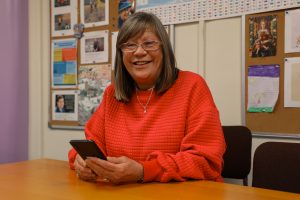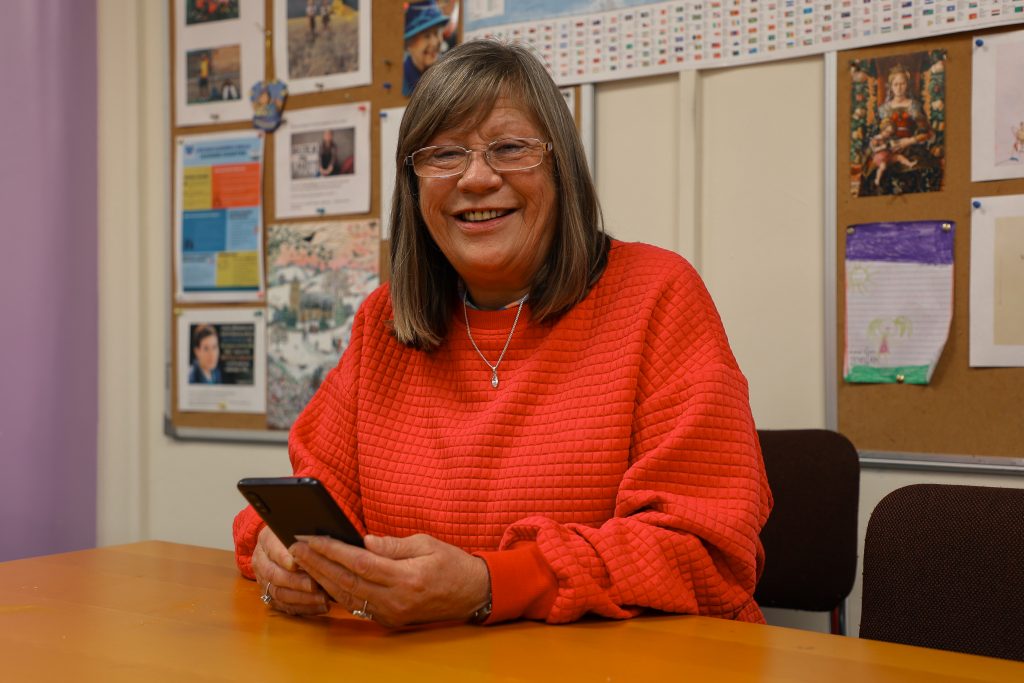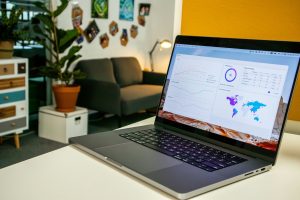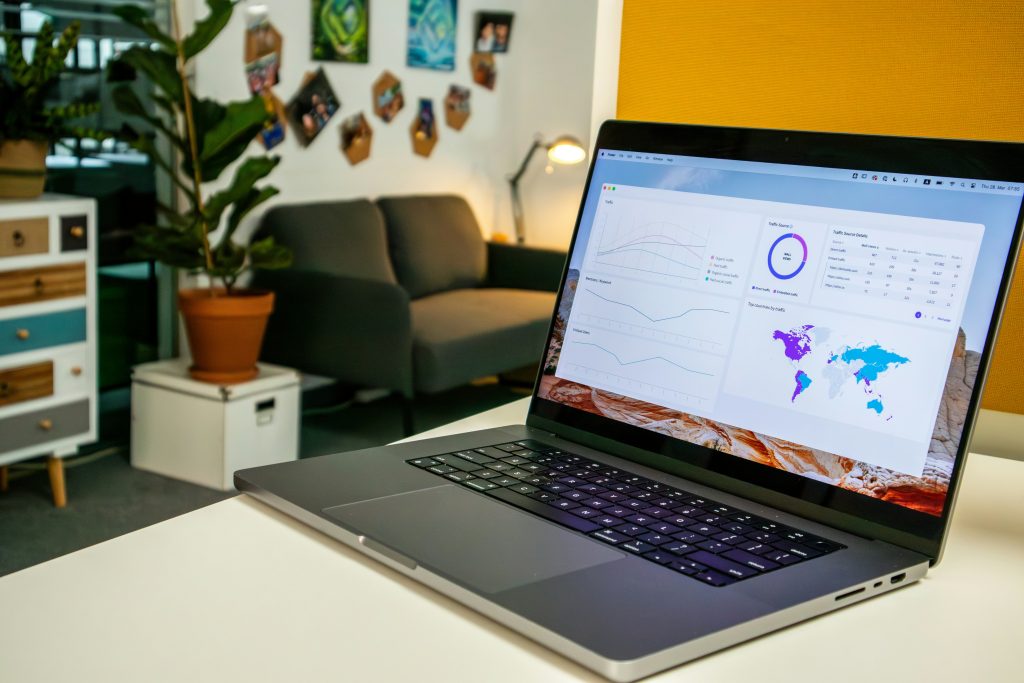Do you want to make a difference to those in need in your community and to the environment?
This playbook will help you think about how your business or organisation can implement an IT reuse programme that promotes both circularity and digital inclusion.
About the IT Re-use for Good Charter
Beginning a reuse programme is not always a process with a clear beginning, middle and end, and will work differently for different organisations. You don’t necessarily need to read the playbook from start to finish but can dip into the different sections that will be most useful to your organisation. You might want to start by thinking about the distribution phase and who will be the recipients of your devices. You might want to start by thinking about what partnerships you would need to be able to take on refurbishment. Or you might simply be looking at a cupboard full of old laptops and wondering what you can do with them. The list below shows the different parts of the process so you can focus on the sections that are relevant to you.
Impact
A collaboration between

The Digital Divide
In today’s digital society, it is important for people to be able to access the internet. So many aspects of our lives now happen online – paying bills, making appointments, applying for jobs and financial support, doing homework and schoolwork, as well as staying in touch with family and friends, and much more.
There are many people in the UK who struggle to get online. 2.4 million UK households can’t afford their mobile contract (Ofcom Communications Affordability Tracker ) and 8.5 million adults lack basic digital skills (Lloyds Consumer Digital Index 2023
). According to Ofcom’s 2024 Childrens Literacy Report
a third of all schoolchildren do not have an appropriate device for learning at home and the Lloyds Consumer Digital Index 2023
also highlighted that 1.5 million people do not have access to a smartphone, tablet or laptop. Digital inclusion work such as that provided by Good Things Foundation
, who provide devices, skills and mobile connectivity for those in need, helps to bridge this digital divide.
Electronic waste in the UK
In the UK, an estimated 2 million tons of electronic, or e-waste, is discarded by companies and households each year, including large volumes of IT equipment such as computers and laptops – the third largest category of e-waste in the UK (Health and Safety Executive, 2019). There are 30,000 small electrical and electronic products that could be reused that are recycled each week (Restart 2023 ). Electronic goods represent a substantial proportion of an organisation’s carbon emissions (Circular Electronics Partnership 2024
), and up to 200,000 tonnes of business electricals are being thrown away with general waste (Material Focus 2024
). Almost 40% of laptops dropped off for recycling are likely to be fit for reuse instead (Wrap 2017
), and ‘Drawers of doom’ (Jennifer Clair Robson. 2024
) hold up to 880 million unused items sitting in UK homes some of which (e.g. computers, laptops and mobile phones) could be donated through digital inclusion schemes (Material Focus 2023
).
Promoting circularity
Contributing devices that are no longer in use not only means they will not go to landfill, but can be passed on to people who really need them. Promoting circularity and reusing devices rather than buying new helps to tackle climate change. The UK government is moving towards a circular economy approach. Both the public and private sectors can be role models in embedding a circular approach into their strategies for IT asset management – as demonstrated in Good Things Foundation and University of Liverpool’s Public Sector Pioneers report .
Why reuse devices for social good?
Digital inclusion support in the form of providing a device, along with connectivity and skills support if required, gives everyone an equal opportunity to use and benefit from technology and the internet. Contributing devices and other IT equipment for reuse and helping people in need in their local communities changes people’s lives, opens up opportunities, is better for the planet, and promotes a circular economy. It’s a win-win!
Case study
Making a difference: Metropolitan Police Service
16 tonnes of e-waste prevented, and families in digital poverty supported

Case study
Making a difference: Metropolitan Police
The Metropolitan Police Service donated 17,000 used ICT devices to Good Things Foundation to be re-homed. This avoided 16 tonnes of waste and helped families experiencing digital poverty.
Source: GLA Group Responsible Procurement Progress Report 2023

Case study
Giving devices a new lease of life: VodafoneThree
Vodafone UK set up the Great British Tech Appeal

Case study
Giving devices a new lease of life: VodafoneThree
“We set up the Great British Tech Appeal to allow consumers and businesses to donate old devices and give them a new lease of life, doing good for both people and the planet. This programme supports a circular economy and helps people in need cross the digital divide. We work with our partners to make sure that every reusable device goes towards someone in need, along with six months free data, calls and texts.”

Getting started
Are you at the start of your journey? You should:
- Collaborate with accredited and established partners who can provide expertise, connections and reassurance over data security and legal compliance.
- Decide on your key drivers and bring together the right people to support your work – from department level (senior leadership, IT, asset management, sustainability) to individual champions with the passion to drive your scheme forward
- Start small – whatever assets are currently available can be donated for a quick win and positive reporting (ESG and Social impact)
- Make sure you know what kit is reusable, what can be recycled and what will need to be responsibly disposed of
- Decide who will be the recipients of your refurbished devices, how you will make sure devices go to those who are digitally excluded, and how you will make sure devices distributed are of a suitably high standard
- Make sure your scheme complies with legislation and regulations on data security and e-waste
- Find a cost-effective pathway that works for your organisation
- Decide what wraparound support you will offer
Ready to scale up an existing scheme?
- Build on short-term partnerships for longer-term impact and cost efficiency
- Seek out partners who can help to expand your reporting and increase knowledge sharing opportunities, e.g., to quantify your social and/or environmental impact values
- Take advantage of catalysts such as refresh cycles and existing partnerships to grow your scheme
- Embed IT reuse into your processes and procedures so it becomes Business As Usual
- Build your scheme into your annual reporting on both sustainability and social impact
- Seek out funding sources and cost savings to increase the sustainability of your scheme
- Expand your wraparound support offer, your distribution pathway, and/or contribution amounts